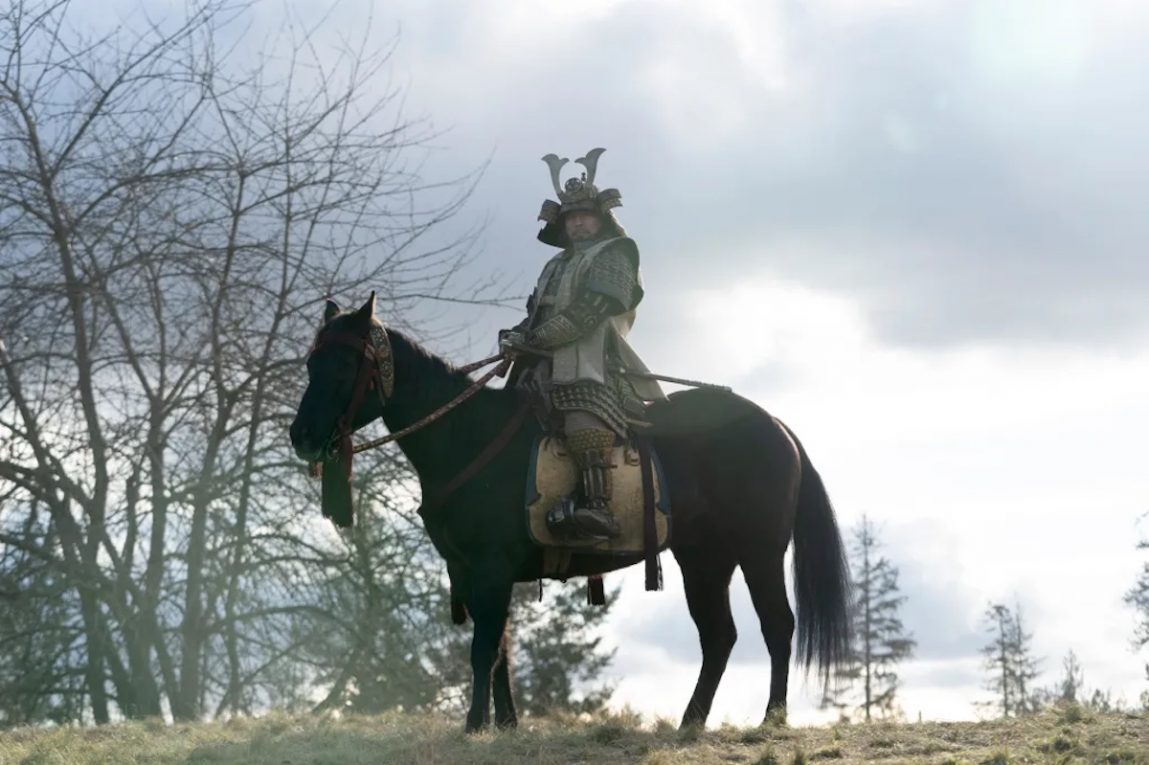Shogun, James Clavell's epic historical novel, was first adapted for television in 1980. It starred Richard Chamberlain as John Blackthorne, an English sailor who becomes embroiled in a Japanese civil war in the early 16th century, and Japanese cinema legend Toshirô Mifune as Toranaga, a feudal lord at odds with the rest of his country's ruling class. This NBC version had no subtitles, so Japanese dialogue was only translated in scenes where bilingual characters acted as interpreters for Blackthorne. The producers defended this decision as a creative choice as they felt the story should be shown from his point of view. It's an incredibly short-sighted and parochial view of a book that went to great lengths to include the many non-white characters and give them full dimension, while Chamberlain's miniseries treated them all as exotic supporting players in Blackthorne's story.
The new FX adaptation (from March 5th on Disney+, one episode every Tuesday) makes a lot more sense. Most of the dialogue is subtitled in Japanese. And at least you should treat Blackthorne (here played by Cosmo Jarvis) and Toranaga (Hiroyuki Sanada) as equals on a narrative level. In fact, in the end, Toranaga has everything it takes to be the main character.
In Rachel Kondo and Justin Marks' adaptation, this new shōgun delves deep into the culture of the time and the many intricate forms it encounters with Toranaga, Blackthorne's translator Mariko (Anna Sawai); Mariko's cruel husband Buntaro (Shinnosuke Abe); and everyone else we meet along the way. Shogun It's beautiful to look at, a work on a much larger scale game of Thrones than anything FX has done in the past with shows like The American or The bearand works as both a great story and a sociological text.
The story begins again from Blackthorne's perspective as his damaged ship lands in a Toranaga-controlled port. He and his teammates have arrived to plunder a land populated by, as he puts it, “a savage horde,” and he is surprised to learn that the Japanese instead consider him a vile barbarian. Over time, he realizes that life in Japan is in many ways superior to the world he left behind, such as regular bathing and medical care without leeches. But he also learns that the national commitment to honor at all costs cuts both ways, leading to great acts of heroism and sacrifice, but also to startling, sometimes horrific behavior in which people feel compelled to commit ritual suicide for seemingly minor crimes (Seppuku). Mariko warns John not to be fooled by everyone's polite behavior, and he begins to realize that his life is a constant struggle due to issues of honor and women's role in society.
Hiroyuki Sanada in Shogun. Photo: Katie Yu/FX/Disney
The cast is wonderful. Sanada's charisma and intense silence make it entirely believable that Toranaga is an inspiring leader of men, but also a brilliant strategist who is always five steps ahead of his many enemies. Anna Sawai expresses everything with every pained expression on Mariko's face. As the ambiguous warrior Yabushige, Tadanobu Asano is amusingly inspired by the young Mifune Seven samurai. Cosmo Jarvis' appearance is deliberately larger and at times more expansive, but that only emphasizes how alien he is in this beautiful place. (The more he learns about and respects this strange new world, the more modulated the actor's work becomes.)
Clavell's book has an epic scope that the show emulates by focusing so heavily on every detail. There are extraordinary and powerful scenes, such as an earthquake that destroys one of the armies at an inopportune moment. We also have the ill-fated romance between Mariko and John, complicated feuds between various Japanese lords and vassals, interference from Catholic missionaries from Portugal, and more. The series sometimes loses track of some plot threads (Portuguese characters disappear from the narrative for long stretches), but overall it does an excellent job of translating this literary juggernaut to the screen. He even manages to make Mariko's gift for freestyle poetry seem as powerful a weapon as the cannons John brought back from Europe.
Mariko has converted to Catholicism and sometimes feels uncomfortable when she hears the Protestant Blackthorne insult representatives of her faith. Toranaga, needing her to remain close to this unlikely ally, asks her if her loyalty to God would conflict with her service to him. Mariko replies that this would be a problem if she were only a Christian: “But I have more than one heart.” Instead of fixating on the simple 80s cliché of a stranger in a strange land, also from the heart Shogun it has many, but equally many points of view. And it's fantastic.
Out of Rolling Stone USA

